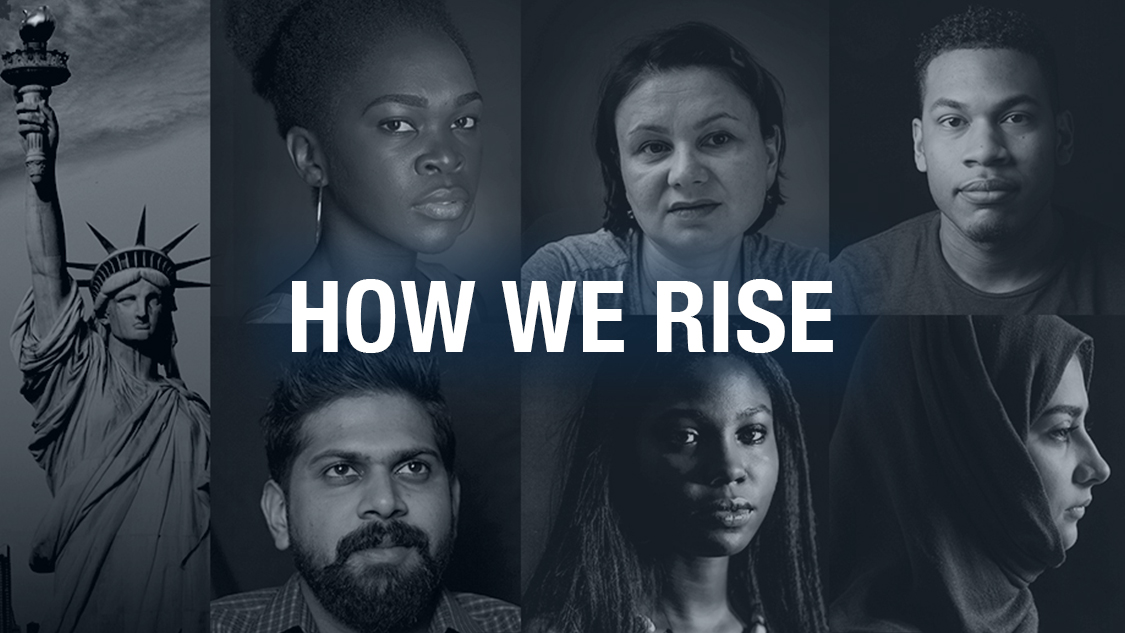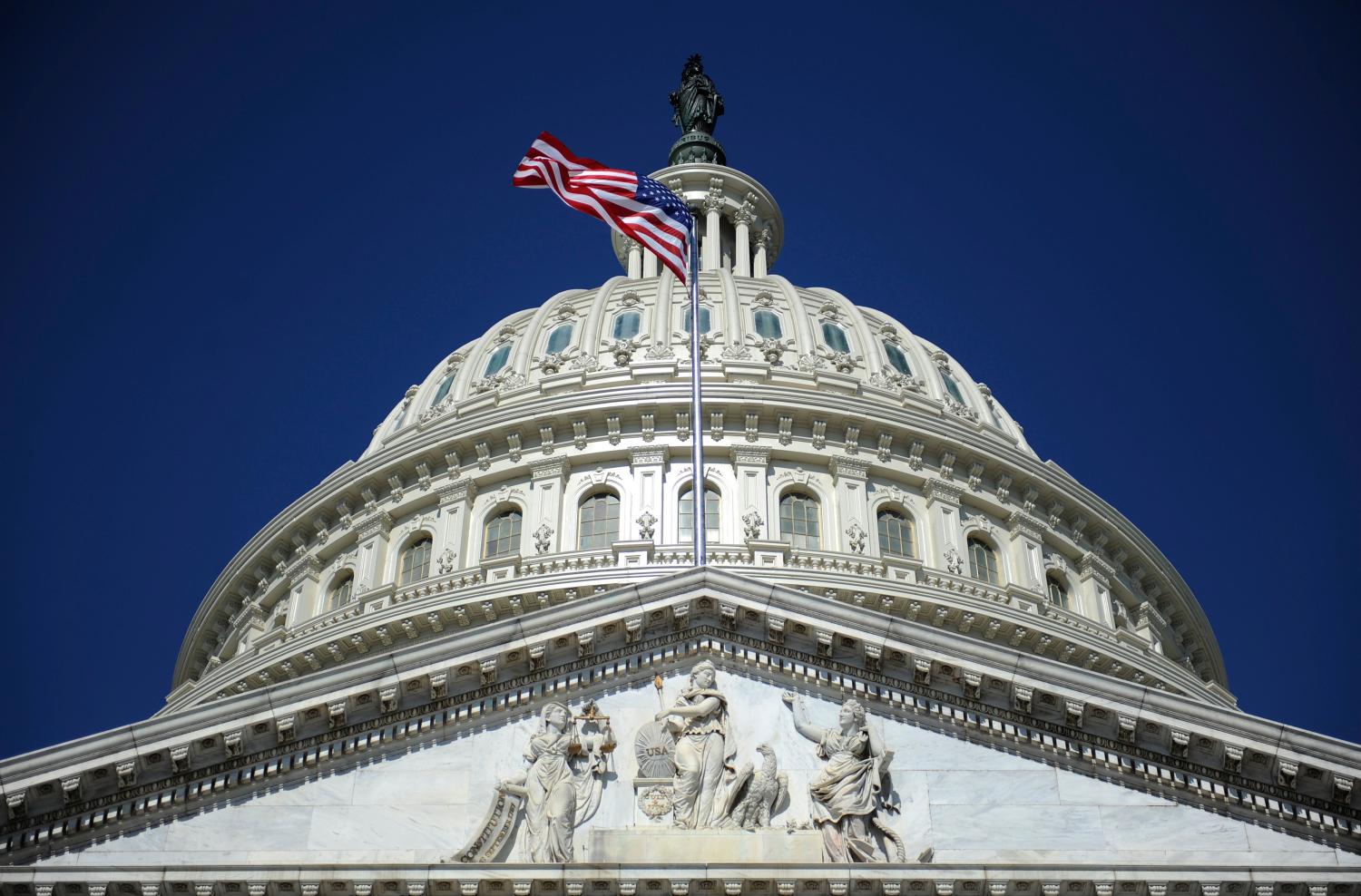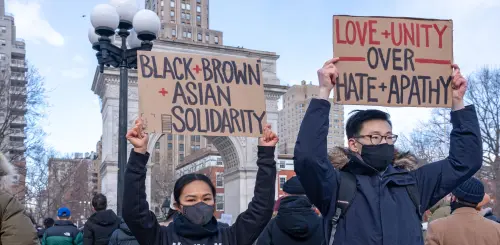South Carolina Republican Sen. Tim Scott shocked many people when, in response to President Joe Biden’s congressional address, he stated that “America is not a racist country.” He admitted that he himself had experienced “the pain of discrimination,” and noted, “I know what it feels like to be pulled over for no reason, to be followed around a store while I’m shopping.” When asked on ABC’s Good Morning America the following day, Vice President Kamala Harris seemed to agree with Scott when she said, “I don’t think America is a racist country.” Yet immediately following this sentence she quickly pointed out, “But we also do have to speak truth about the history of racism in our country and its existence today.”
As Soledad O’Brien said, “It sounds like a racist country to me,” in response to Scott—but it seemingly applies to comments by Harris as well. President Biden, who seemed to not pull any punches during his speech, stated, “We have a real chance to root out systemic racism that plagues America.” However, Biden appeared to walk back his remarks on The Today Show to align more with Harris and Scott (to a certain degree) by noting that slavery and Jim Crow laws had a cost.
It is almost as if simply saying America is not racist, but then turning the other cheek and saying it is racist in subtler terms and that racist things have been done to you makes it ok. It is confusing to Americans and the international community. To supporters, these comments are disappointing. To others, they were shocking. For me, the cognitive dissonance of some of our elected leaders is real and explainable. There is an oversimplification of racism in America, because as sociologist Eduardo Bonilla-Silva notes, there can be systemic racism without racists.
When a person critiques America for the racism that is deeply embedded in our social institutions, some feel they are being personally attacked. This is because deep down they realize that they benefit from unearned assets associated with whiteness. Scott, Harris, and Biden recognize this and try to balance these varying perspectives as they worry about voters nationally and in a state like South Carolina.
Recently, a parent at a city council meeting had a meltdown when trying to explain why she does not want critical race theory taught in her children’s school. Florida Gov. Ron DeSantis said that systemic racism as a concept is “a bunch of horse manure.” So, not only has Florida made it legal to harm people protesting, but he banned teaching critical race theory in schools. For a deeper dive on critical race theory, people should read the work of sociologists Victor Ray and Ted Thornhill, who lay out why DeSantis’ perspective is problematic.
I conducted research with Matt Hunt on what predicts who believes they are middle class. For education, income, and occupational prestige, Black people are less likely to identify as middle class compared to whites with comparable levels of these socioeconomic outcomes. Why? It is because social class is not just about what a person looks like on paper, but how people experience social class in everyday life and the deference that one receives for their socioeconomic status. Black people are less likely to get that deference, while white people are often afforded more. It is so commonplace for white people that some cannot fathom living without it. This is because many white people, particularly white people with lower levels of education and income, realize that whiteness comes with a premium that extends beyond economics to include cultural and social capital. As President Lyndon Johnson said, “If you can convince the lowest white man he’s better than the best colored man, he won’t notice you’re picking his pocket. Hell, give him somebody to look down on, and he’ll empty his pockets for you.”
Harris and Scotts’ comments are puzzling at a broader level as well considering how much of a collective memory their experiences with racism are—Harris reliving her systemic experiences with bussing and Scott recounting the nearly 20 times he has been pulled over by police, where being an elected official potentially made the interaction worse.
These stories acknowledge that life is different if you are Black, and unfortunately systemic racism seems to ripple through our social institutions and into our daily social interactions, whether in Congress or at a coffee shop down the street from the Capitol. These types of experiences—racialized cuts and hurdles—have a cumulative effect on health. Sociologists Pam Jackson and Jason Cummings’ research documents that middle-class Blacks have worse health profiles than working-class whites. They attribute this difference to the daily racialized trauma experienced in predominately white environments like work and neighborhood settings.
Systemically, we know that Black people compared to whites are more likely to attend schools with less funding per student, less likely to obtain a job because of our “Black-sounding” name or even when attending an Ivy League university, less likely to obtain a home loan (even when having the same credit score), have their homes appraised for equitable value, more likely to experience pregnancy complications and maternal mortality, and more likely to have contact with police and the criminal justice system.
Systemic racism inhibits (rather than prohibits like in the past) people’s ability to actualize all aspects of the American Dream. This occurs even for highly-educated Black people with high incomes and no criminal record. In fact, research documents that white people with a criminal record are more likely to get called back for a job than Black people without one.
Research documents that hard work (or lack thereof), intellect, or criminality do not explain these outcomes. Instead, it is the racism embedded deeply within our social institutions’ policies, rules, regulations, and laws that segment people’s experiences along racial lines. It is the same for gender. Women can achieve but have a much harder time doing so. If not, America would have had a woman vice president and speaker of the House sitting behind the president long before 2021.
What people do not seem to realize is that being upwardly mobile does not negate encountering racist hurdles on the pathway to success. Our current system is set up for some people to have to jump over hurdles to succeed, while others get to simply run to the finish line without those same racial hurdles. Rather, it is about whether the pathways to success are equitable. This is what America says it is: an equitable democracy. People are pushing for America to reach its true ideals and the only way this can properly occur is acknowledging the systemic barriers that prevent us from getting there. Moreover, it is not that racial progress has not been made. It is that the United States has yet to make enough progress. In this regard, comments of our top elected officials are disappointing, yet predictable.
Black people who succeed often walk on pins and needles because they realize that their success, and more so maintaining it, is precarious. As a result, some Black people aim to make white people feel comfortable. Many of us are mostly socialized to do so. It is often a survival strategy for our lives during police encounters or economic survival in boardrooms. Some of us who succeed may experience “survivor’s remorse” because we are some of the few to “make it.” We actually embody the American Dream and become the in-person example to people who do not want to admit that systemic racism exists. We may even convince ourselves that racism is more prominent on the individual level than the institutional level. We simultaneously represent racial progress but are also most likely to be subjugated to racial discrimination because of the predominately white spaces we are embedded within. We experience a chronic form of double-consciousness and admitting as such can often lead us to being conscious of the slow death we often experience through the cumulative racist cuts and hurdles we encounter. The American Dream being achievable for a few does not absolve the system and an imperfect union, even when some of those successful people try to rationalize systemic racism away.
In most instances: When Black parents worry about their straight-A student’s traffic encounters with the police more than they do a potential accident, this is because of experiences with racism. When a Black couple is about to have a baby and has to think consciously about what hospital to deliver in so they can obtain equitable care, this is racism. When a Black parent worries about their child attending a prestigious university outside of an urban area, this is often because of the racism they worry about them encountering driving to the school and even once physically on the campus of the school. And even more urban universities are not absolved from racism.
Systemic racism is not simply a thing of the past. It is up close and personal in the present.
Racism may be no more transparent in an institution with the least representative racial progress like the Senate. There have only been 11 Black senators in roughly 232 years. Clearly, the Senate is the exact space we need people with the courage to say the blunt, honest truth about our nation’s past and present. Only then can we actualize a future where systemic racism does not exist. It is imperative for a truth, reconciliation, and reparative process to commence. This starts with atoning for the enslavement of millions of Africans whose descendants continuously fall systemically behind, whether they end up being the lone Black Republican senator or a Black police officer who might have the power to pull him over. We must have the courage to speak truth to power and one of the places it starts is in Congress. “If not now, then when?”
The Brookings Institution is committed to quality, independence, and impact.
We are supported by a diverse array of funders. In line with our values and policies, each Brookings publication represents the sole views of its author(s).








Commentary
Is the United States a racist country?
May 4, 2021